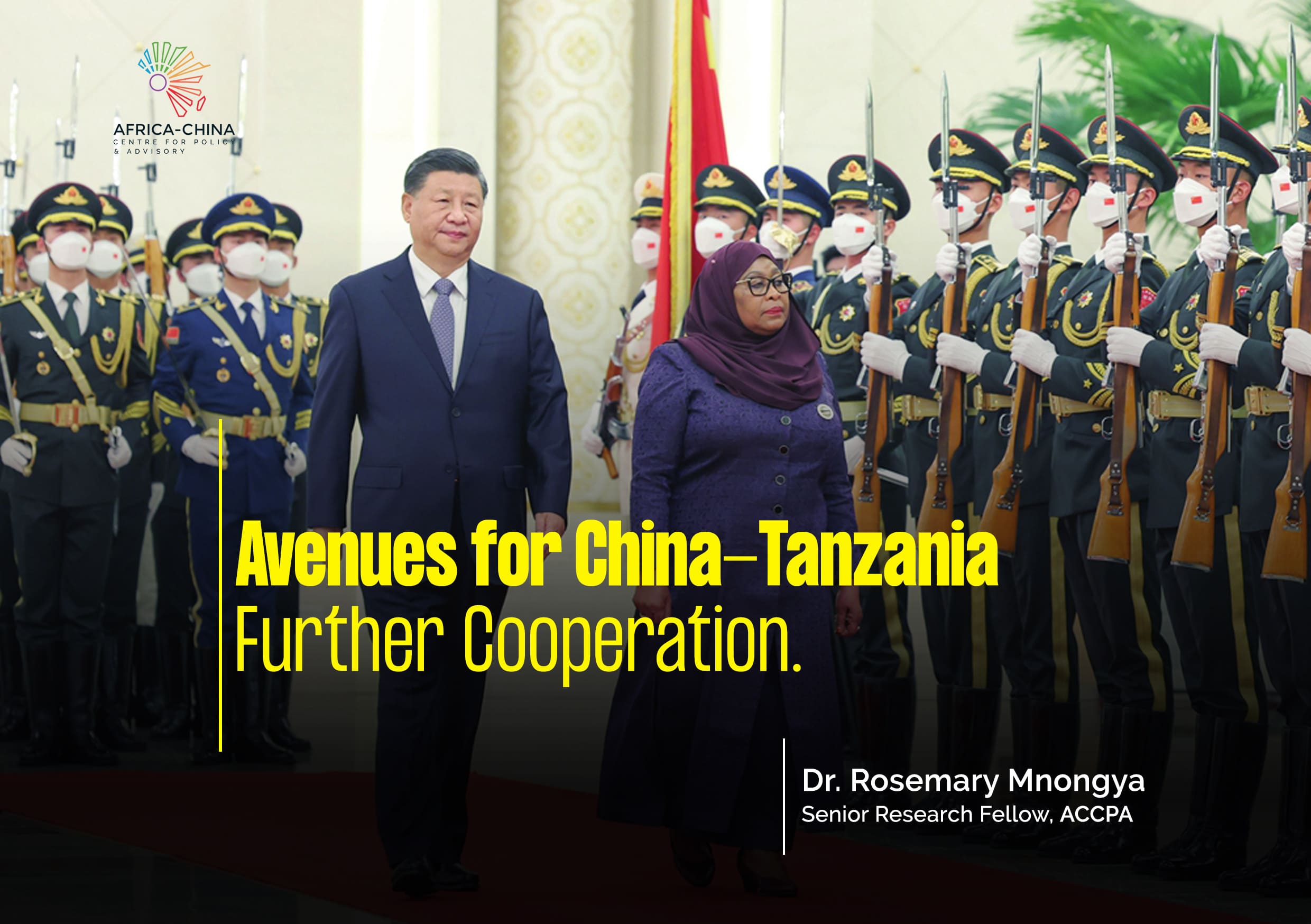China and Tanzania share a longstanding friendship that has grown stronger over the years. With both countries demonstrating a commitment to cooperation and development, there are numerous avenues for further collaboration. This article explores the potential areas for enhanced cooperation between China and Tanzania, highlighting relevant statistics that underscore the significance of these opportunities.
Infrastructure Development
Infrastructure development is a key area where China’s expertise and investment can significantly benefit Tanzania.
The Belt and Road Initiative (BRI) has already laid the groundwork for infrastructure projects, including ports, railways, roads, and power plants. For instance, the construction of the Tanzania-Zambia Railway (TAZARA) is a testament to the successful partnership between the two countries.
Chinese companies invested in several infrastructure projects in Tanzania in 2022, including the construction of a new airport in Dar es Salaam, a new railway line between Dar es Salaam and Mbeya, and a new power plant in Singida.
In addition, they also invested in several manufacturing projects in Tanzania in 2022, including a cement factory, a steel mill, and a textile factory. According to data from the Tanzania Investment Centre, China was the largest foreign investor in Tanzania in 2021, with investments primarily directed toward infrastructure projects.
The total value of Chinese investments in Tanzania reached $7.6 billion in the same year, making it a crucial partner in driving the country’s infrastructure development. The top three Chinese investors in Tanzania in 2022 were China Railway Group Limited, China Mobile, and China Construction Bank.
The investments have been on an upward directory as shown in the trends analysis below:
| Year | FDI (USD) |
| 2021 | 9.6 billion |
| 2021 | 8.17 billion |
| 2020 | 7.6 billion |
| 2019 | 5.3 billion |
| 2018 | 3.8 billion |
| 2017 | 2.5 billion |
Trade and Investment:
China is Tanzania’s largest trading partner, with trade volumes between the two countries steadily increasing over the years. Collaborating to further enhance trade ties can bring numerous benefits to both nations.
Tanzania’s rich natural resources, including minerals and agricultural products, present opportunities for increased exports to China. The top exports to China are raw hides and skins, coffee, cashew nuts, sisal, cotton, and various minerals.
As of 2022, Tanzania’s exports to China were valued at $293.72 million, while imports from China stood at $7.77 billion, according to the United Nations Comtrade database. The trade imbalance indicates the potential for Tanzania to diversify its exports to China by focusing on value-added products and promoting a bilateral trade balance.
Manufacturing and Industrialization:
China’s experience in manufacturing and industrialization can provide valuable insights and support for Tanzania’s efforts in these sectors. Collaborative ventures can help establish industrial parks, transfer technology, and develop local manufacturing capabilities.
This will not only boost Tanzania’s economic growth but also create employment opportunities and promote skill development. China has transferred technology to Tanzania in some sectors, including manufacturing, agriculture, and energy.
This technology has helped to improve Tanzania’s productivity and competitiveness. Additionally, China has provided training to Tanzanians in a myriad of fields, including manufacturing, agriculture, and business. This training has helped Tanzanians acquire the skills they need to succeed in the current economic landscape.
Tanzania aims to become a semi-industrialized nation by 2025. In this regard, Chinese investment has been instrumental. The manufacturing sector in Tanzania received $417 million in investment from China in 2020, supporting the country’s industrialization drive.
Tourism and Cultural Exchange:
China and Tanzania are renowned for their rich cultural heritage and diverse tourism offerings. Strengthening tourism and cultural exchanges can attract more Chinese tourists to Tanzania while fostering people-to-people connections and mutual understanding.
Collaborative efforts to promote tourism will further contribute to economic growth and create employment opportunities. It is anticipated that Tanzania could receive approximately 45,000 Chinese tourists by the end of 2023, according to the Tanzania Tourist Board.
With the increasing popularity of outbound Chinese tourism, there is immense potential to attract a larger number of Chinese visitors to Tanzania’s breathtaking landscapes, wildlife reserves, and historical sites.
Way forward
The collaboration between China and Tanzania spans various sectors, each offering unique opportunities for further development.
The statistics demonstrate the substantial progress achieved in recent years and highlight the potential for even deeper cooperation. Strengthening infrastructure, expanding trade and investment, promoting manufacturing and industrialization, and enhancing tourism and cultural exchanges are avenues that can further solidify the ties between China and Tanzania.
By harnessing the benefits of this collaboration, both countries can achieve sustainable growth, prosperity, and shared development in the years to come.
Written by: Dr. Rosemary Mnongya Senior Research Fellow, ACCPA





